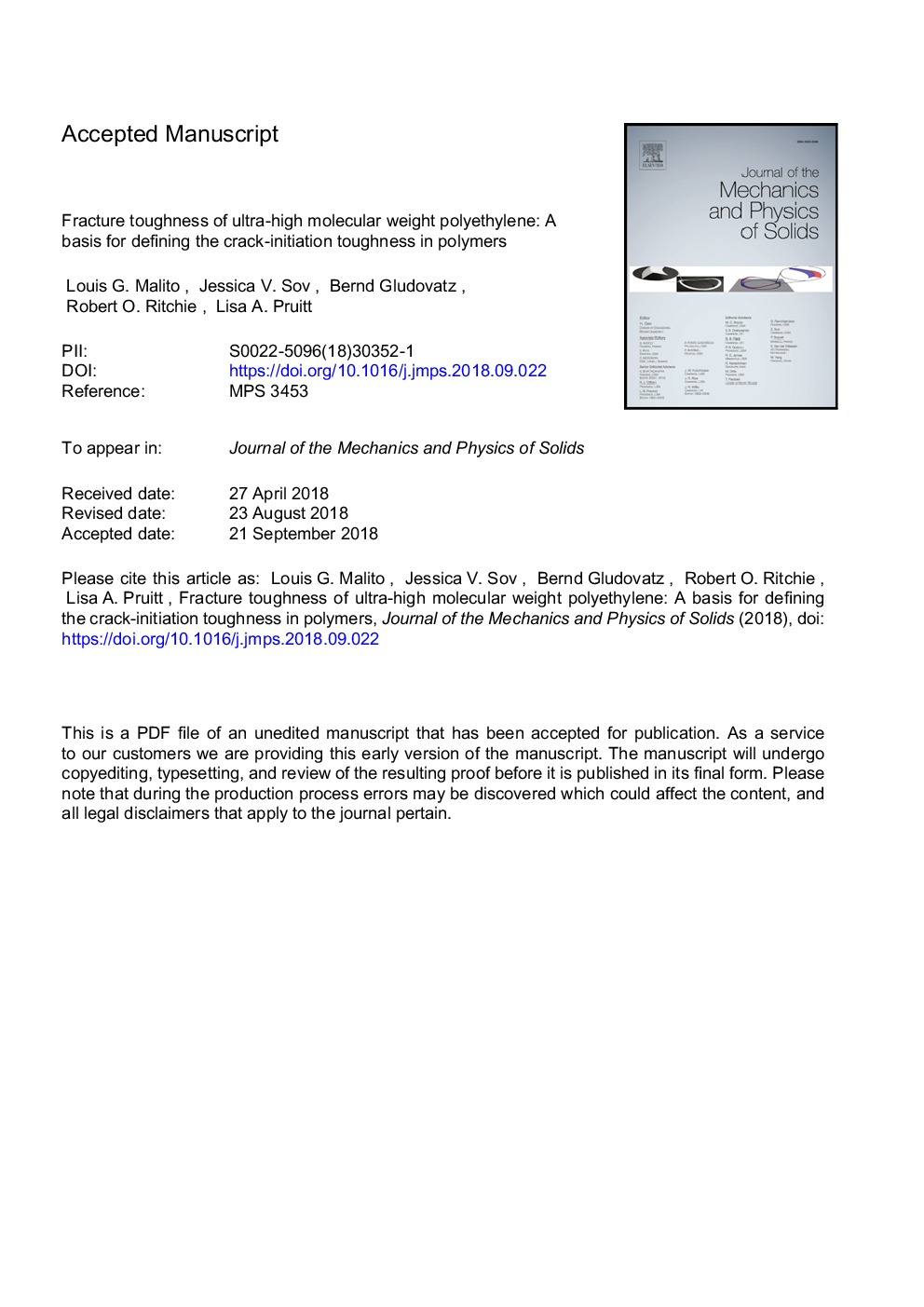| Article ID | Journal | Published Year | Pages | File Type |
|---|---|---|---|---|
| 11027792 | Journal of the Mechanics and Physics of Solids | 2019 | 45 Pages |
Abstract
This paper presents a cohesive methodology for quantifying the fracture behavior of structural polymers. We accomplish this task by reviewing the complexities of polymer fracture mechanics and associated J-integral fracture toughness testing as well as by conducting appropriate nonlinear-elastic fracture mechanics measurements with comprehensive analysis. J-based crack-initiation and crack-growth fracture toughness testing is performed on ten clinically relevant formulations of ultra-high molecular weight polyethylene (UHMWPE). This polymer is chosen for its extensive literature base in terms of its mechanical properties and fracture toughness behavior, as well as its safety-critical importance and broad use in total joint replacements. One of the current limitations in the fracture toughness characterization of polymers is the use of “engineering” constitutive behavior to determine the crack-initiation toughness, as compared with the “true” constitutive properties. UHMWPE offers a plethora of true tensile stress-strain data that serves as a template and predicate base for fracture analysis. This paper aims to demonstrate why using true stress-strain behavior for polymer fracture mechanics is so important and why a justified comprehensive analysis method is needed in order to reliably measure the fracture toughness of polymeric materials.
Keywords
Related Topics
Physical Sciences and Engineering
Engineering
Mechanical Engineering
Authors
Louis G. Malito, Jessica V. Sov, Bernd Gludovatz, Robert O. Ritchie, Lisa A. Pruitt,
